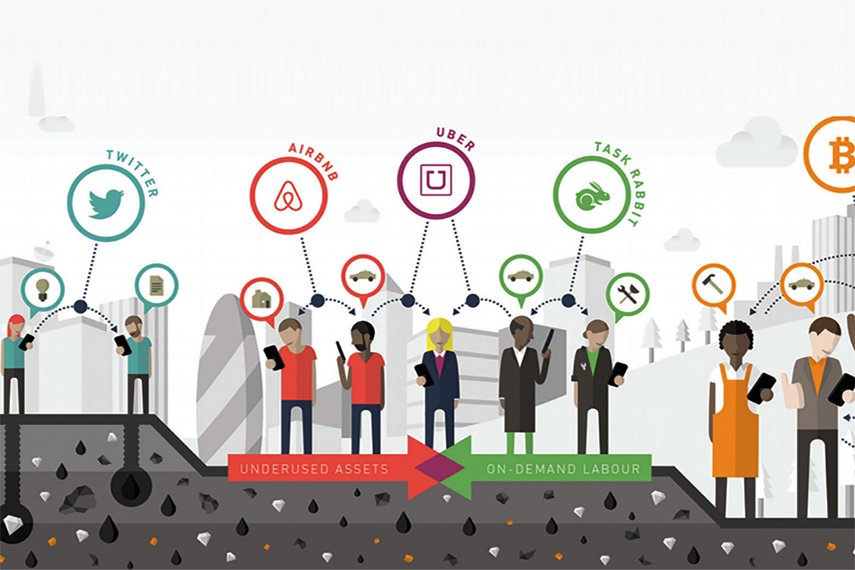(picture: http://www.intelligenthq.com/social-business-2/fair-share-reclaiming-power-in-the-sharing-economy/)
The rise in sharing economy companies has brought about economic and social benefits such as the increase in jobs. The existence of these sharing economy companies are fueled by the increase in demand by the public. People increasingly demand for cheaper, more convenient methods to purchase goods or services. Thus, this results in the creation of job employment opportunities to fill the demands. The increase in job opportunities would naturally increase the income levels and consumption levels in a society.
However, a rise in job opportunities in such sharing economy companies can also result in retrenchment in other job-related industries. Uber has been gaining popularity because of its easy-to-use functions and its convenience among most smartphone users. Thus, a rise in demand for Uber drives may lead to a fall in demand for traditional taxi companies. This can ultimately cause retrenchment of taxi drivers and a loss of their livelihood.
In the aspect of retail and consumer goods, 78% of people agree that the sharing economy reduces waste (PWC, 2015). By sharing, swapping and trading goods around in the community, wastage of resources is significantly minimised. In Singapore, flea markets and peer-to-peer marketplaces such as Carousell are rising in popularity among millennials. Here, we can not only purchase clothes and goods at a much cheaper price (since they are pre-loved), but we can also trade clothes with people if both parties mutually agree on it. Although there is an issue of the lower quality, most people (myself included) are willing to pay less for less.
In addition to clothes, a more practical use of the sharing economy is the trading, or selling of secondhand textbooks. University textbooks can be extremely expensive, especially since we only use it for a couple of months. Thus, websites such as bookinbookout encourages people to sell or swap their textbooks around in the community. This proves sustainable in the long run as we would be consuming (and demanding) less paper products by simply trading our otherwise unused textbooks.
It is said that if sharing models are operated under most favourable conditions, it could save up to 7% of budget in households, and could reduce up to 20% of waste (Demailly & Novel, 2014). In addition to reduction of waste, sharing economy companies greatly reduces the carbon footprint. According to a study conducted by the Cleantech Group, home sharing companies have been reported to emit 66% less carbon dioxide than hotels. The reduction of greenhouse gases (GHG) means that there is less air pollutants released in the air. This directly improves the quality of air in the city. Apart from the reduction GHG, switching to home sharing companies also reduces the water usage. In just one year alone, European Airbnb guests have saved 1100 Olympic-sized pools worth of water compared to the amount of water usage in traditional hotels (Pickell, 2015).
There is no clear argument whether sharing economy companies make a city sustainable as there are simply too many areas of consideration. However, the limitations of sharing economy companies can be minimsed through government regulation (instead of being left to the free market).
references:
http://www.iddri.org/Publications/Economie-du-partage-enjeux-et-opportunites-pour-la-transition-ecologique
http://www.huffingtonpost.com/jim-pickell/how-the-sharing-economy-h_b_8761184.html

No comments:
Post a Comment